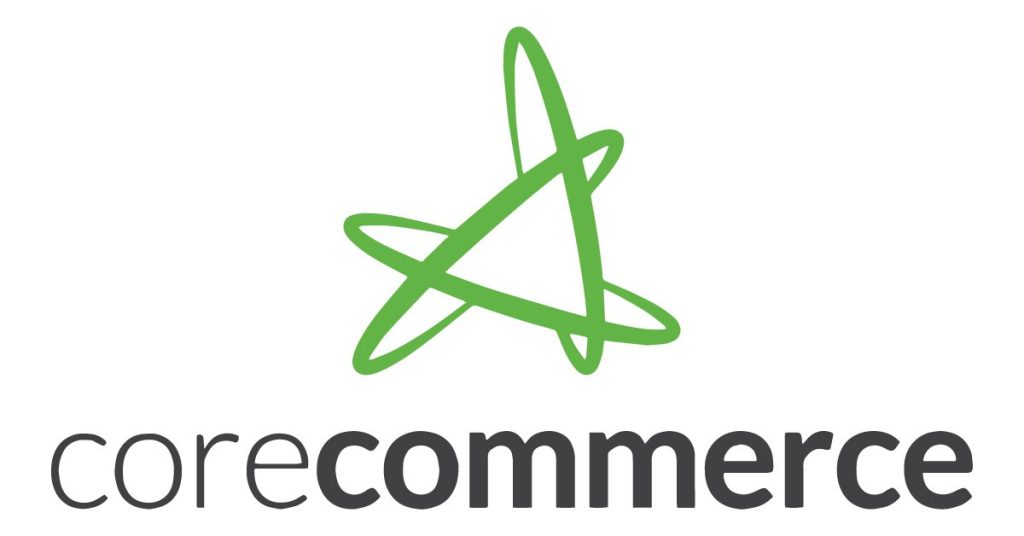Running an eCommerce store and can’t find the best CMS for your needs? No wonder. With all the restrictions that have been set up during the coronavirus lockdowns that were going on and off around the world – more and more people are turning to virtual shops. The top eCommerce platforms listed in this article can help you set up an online store that meets your requirements.
There is a wide variety of eCommerce platforms to choose from, making it easier than ever to set up an online store.
What do you need to get started?
To begin, you’ll need eCommerce web hosting or hosting that can grow together with your business without interference. Next, you’ll need a shopping cart software to run with your eCommerce site. This will most likely contain a payment gateway for credit card processing, though if you’re already established and have a good credit rating, you could apply for merchant services to lower transaction fees.
Your eCommerce website will not require thousands of dollars for an expensive to design, as there are numerous eCommerce themes and ready-to-use templates available. Furthermore, if you already have a physical store, a Point of Sale (POS) system for mobile credit card processing may be especially appealing.
Which eCommerce software is appropriate for your business is totally dependent on your individual needs. POS integration is not required; however, foreign currency support is required if your business is global.
In this post, we’ll cover some of the top eCommerce platforms available right now.
So, top eCommerce platforms that you’ll love in 2022:
Wix
Wix is the easiest eCommerce platform. Check out Wix if you prefer a simpler option to some of the more complex web store creation tools listed below. It’s really user-friendly, yet there’s still enough eCommerce capability to create a genuinely attractive online store.

Wix is known for its multi-purpose website builder, but it now offers a fully-functional eCommerce platform in addition to templates and logos.
While other eCommerce platforms are known for their complexity in providing an eCommerce platform for all demands, Wix offers a simpler alternative for small businesses that don’t need all of the chimes and whistles of an online megastore.
Furthermore, thanks to Wix’s array of website building tools, setting up an eCommerce platform is extremely quick and easy to do and manage, with no coding knowledge required. As a result, everyone should be able to use the platform without too much hassle.
There are 500+ templates available, so you can acquire the look and feel you want for your eCommerce site. Wix payments allow you to choose from a global network of payment providers, including all major credit card issuers as online services such as PayPal and Stripe.
Overall, Wix is a good option if you want a simpler alternative to some of the more complex web store construction tools on this list. It’s really user-friendly, yet there’s still enough eCommerce capability to create a genuinely attractive online store.
Shopify
Shopify is possibly the most well-known eCommerce platform. It was established in 2006 by Tobias Lütke, Daniel Weinand, and Scott Lake, who believed there wasn’t even one easy-to-use eCommerce platform available, so they built their own.

According to their website, “you don’t need any technical or design knowledge to effortlessly create a great online store.”
Shopify online stores can be up and running in minutes. Users can select from a variety of templates or design the appearance and feel of their store themselves. It takes a wide variety of credit cards, has Level 1 PCI compliance and 256-bit SSL encryption for protection, and offers 24-hour support by phone, instant messaging, or email.
The platform has a full CMS that allows customers to handle the functionality and design of their online store. Users can manage their store on the go with Shopify’s mobile apps, and the platform is entirely responsive, which means the store will be optimized for visitors whether they view it from a desktop computer or a mobile device. A live chat is included, allowing you to chat with your customers in real-time. There is also support for 3D models and video. On Facebook and Instagram, you can also create customized stores. The store speed report is one of the more recent additions.
Shopify also offers users limitless hosting for their businesses, detailed data on how visitors interact with the store, and marketing functions such as SEO optimization, a discount and coupon engine, gift cards, and email marketing tools.
WooCommerce
WooCommerce is a free plugin that may transform your WordPress website into a fully functional eCommerce website. It is not an independent eCommerce platform. However, it’s so popular it has almost become synonymous with e-commerce stores builder. The basic WooCommerce plugin is simple to install via WordPress, and it’s even free.

However, to get the most out of WooCommerce functionality, you’ll need to install a few third-party plugins. This will include payment processing, inventory management, and stock control (and these aren’t free).
Not only does the online store have the storefront theme installed, but it also has a blog and Jetpack free, payment processing, email marketing, and discount codes. Online bookings and appointments, subscriptions, product customization, and local and country tax management are all included in the Premium package.
Overall, Woocommerce is one of the greatest eCommerce platforms for people wishing to ease themselves into launching an online retail business, whether for real or digital products. You can also sell directly through affiliate links.
Bigcommerce
Bigcommerce was established in 2009 with the goal of “supporting your business, not just your store.”

BigCommerce is now a publicly traded corporation on the Nasdaq. In addition to phone, instant chat, and email support, it also offers articles and videos to assist with eCommerce and access to a team of eCommerce specialists who can provide advice and direction about online selling. Their specialists are certified in Google Analytics and Adwords.
Bigcommerce, like Shopify, offers a variety of templates and themes to help stores look their best and get up and running quickly. Users can also design their own stores or hire Bigcommerce designers to do so. The platform has a full-featured content management system (CMS) that allows users to run a comprehensive website rather than just a store.
Users can make use of precise and flexible product administration, improved search engine rankings, and a wide variety of integrated marketing tools and statistics. Payments can be accepted using 40+ pre-integrated channels, and shipping details can be adjusted to meet the needs of the business.
The platform offers automated order processing, adjustable tax laws based on where orders are placed and shipped, and support for numerous currencies.
CoreCommerce
CoreCommerce was set in 2001 and specializes in eCommerce services for small and medium-sized enterprises. The company emphasizes simplicity and transparency, guaranteeing that its platform is simple to use and that clients will not incur any hidden fees.

The fact that all of CoreCommerce’s functionalities are available to all clients, regardless of their plan level, is perhaps its most distinctive feature. The price plans are bound to the number of items, email addresses, bandwidth, and storage space required by the user (higher-end plans also benefit from additional support).
CoreCommerce, like other eCommerce solutions, offers features for store design, product administration, order processing, and marketing. The platform’s highlights include:
- Endless product customization choices.
- A built-in blogging engine.
- Secure hosting supplied by Rackspace.
3dcart
3dcart (formerly Shift4Shop) is the oldest of our featured platforms, having been launched in 1997. It was set to merge as many of the most frequently requested eCommerce capabilities as possible into a single platform.

According to the company, its key principles are as follows:
- continuous innovation,
- good service,
- simple solutions,
- building trust,
- keeping employees and customers happy, and
- stimulating prosperity among employees and consumers.
Some of the platform’s creative features include a gift-wrapping module that customers can install, the ability to run a loyalty program, and the ability to offer recurring orders. Many of these features are quite specialized, allowing stores to be completely customized to the demands of each business.
Users can design their own store or utilize one of 3dcart’s templates. A rapid edit bar makes it easy to make adjustments to a store’s design. The auto-zoom feature brings product photos to the forefront, and goods may be sold on Facebook via its store connection. 3dcart, like several other platforms, allows users to blog directly from the platform, and tools are offered for creating coupons, sending newsletters, and affiliate marketing tools.
It is also regularly updated, and new features, such as the drag-and-drop HTML builder, built-in SEO metrics, the home page editor, and planned promotions, are constantly added.
Users can also take advantage of the “make an offer” option, which allows you and your consumers to negotiate a price. A B2B quote system is also available and offers customers a temporary quoted price after negotiating their purchase over the phone.
3dcart offers a variety of professional services in addition to its platform. SEO, shopping feed management, PPC, social media, Facebook ads, and conversion consultancy are all available to users. Help can also be provided to make sure that a user’s store is properly set up. Services include site cloning, custom tracking setup, data migration, and training.
Shift4Shop may also provide SSL certification. Hosting uptime is assured at 99.9%, and support is available 24 hours a day, seven days a week via phone, email, or online chat.
Consider the alternatives.
What other possibilities are there for you to consider if you don’t want to use an off-the-shelf eCommerce package?
eBay

Since its inception in 1999, eBay UK has grown to over 14 million members, with over 10,000 people using the site as their major source of income. It’s not only about individuals selling unwanted items; corporations have taken advantage of eBay’s ease of use to establish profitable enterprises. Even larger retailers like Argos, Debenhams, and House of Fraser use eBay to sell online.
With the advanced tools that are currently available, you may have your store up and running in a matter of hours. The eBay Seller Centre contains all of the information you require. Each store is controlled using eBay’s familiar user interface, and there are a variety of eBay-provided tools to help you manage, track, and advertise your shop once it’s up and running.
If your business wishes to sell things at a predetermined price, using eBay as a platform for your business could be suitable. This critical component of your store is taken care of by the comprehensive integration of the PayPal e-payments system into eBay.
Before moving forward and opening your own store on eBay, it is critical to carefully consider the costs involved as well as the transaction fees charged by PayPal.
Alternatives to consider are Amazon or Etsy.
How to create your own eCommerce solution for an affiliate store?
Obviously, if you are looking for complete control over every aspect of your new online store, you should build each page yourself. One option here is to hire someone to code your website. If you decide to go ahead with it, take these steps:
- Request live examples of the company’s work to review.
- Create a thorough brief for the site you want to be built. To avoid confusion, include as much detail as possible.
- Make sure you understand the price you’re being charged and how many revisions are included in that fee.
- Before beginning outsourcing, always have a formal agreement or contract.
- Inquire whether the designers will host your site and whether you will be able to make changes on your own or if any changes must be made through the design agency at an additional expense.
- As your website is an important aspect of your company’s intellectual property, request that the copyright to your design be transferred to your company.
- Include instructions in your contract about how the arrangement can be terminated if something goes wrong.
You don’t even have to start from scratch with your website. Purchasing a template will provide you with all of the essential pages your site requires. You may then either adjust them yourself with a program like Dreamweaver or pay a specialist to do it for you. A variety of website templates are available from a variety of providers, and you can dress up any platform.

If you currently have a website and wish to add eCommerce capabilities, there are a variety of programs that can help you do so.
If you are looking to add a referral program to your eCommerce shop while using any of the platforms mentioned above – Scaleo can be easily integrated into ANY eCommerce solution, either through API or with the help of our support team. If you are looking for affiliate management software, give it a try!

Conclusion
Today, there are literally hundreds of platforms and solutions to choose from. Whatever eCommerce platform you decide to choose for developing your store, keep in mind that your store must be easily updated and controlled. A good professional web hosting service is essential for ensuring that your website is always accessible. Look for payment and shopping cart systems that are simple to use and secure.
Businesses should collect clients’ money not only efficiently but also appropriately support them. Ensure that your store is fully integrated with all of the major social media platforms.
Put security first – buyers are more comfortable shopping online than ever before, but always make sure your site uses SSL (Secure Socket Layer), which is now the industry standard for online payments. Remember that in the world of eCommerce, your competitors are only a mouse click away.
Setting up your online store should be done with care and diligence to guarantee that you have a professional and effective site. The popularity of online purchasing is growing – make sure that your business does not miss out! I hope that if you came to this post looking for the best cms for affiliate marketing software, you will be able to choose between the ones we have listed today.
Last Updated on April 10, 2024






